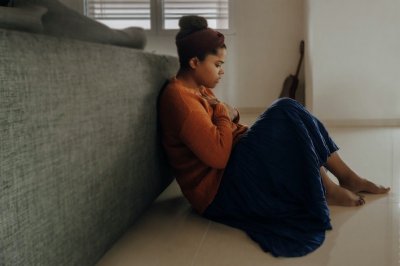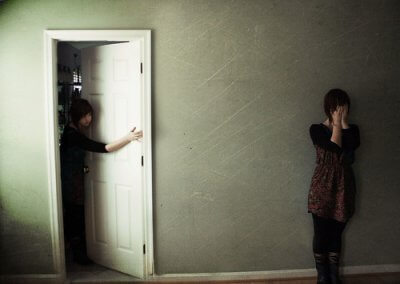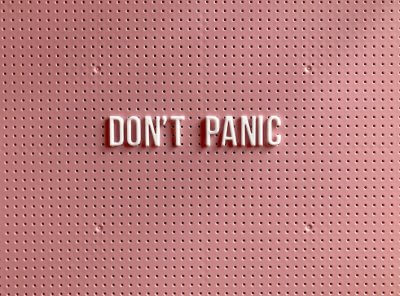Agoraphobia and Social Anxiety – Are They Connected?

photo by: Joice Kelly
by Andrea M. Darcy
Have a total lack of interest in leaving your house lately? And between agoraphobia and social anxiety, not sure where you fall?
Can social anxiety become agoraphobia?
You had social anxiety before all the recent lockdowns, but it seemed to ease. Now the world is opening up again, and it’s back with a vengeance. You are worried that it’s not just anxiety anymore, but agoraphobia.
Instead of one becoming the other, it’s more likely you have both at the same time. Agoraphobia and social anxiety have many similarities, and do intersect as a common ‘co-morbid‘ (occurring together) diagnosis.
But there are also differences, and understanding them can help you get the right treatment.
What is agoraphobia?
The cliché of agoraphobia is someone cowering at home, afraid to leave. But the condition is far more complex. And the fear is not just of ‘leaving the house’ or of ‘wide open spaces’.
Agoraphobia is a fear is of being in any sort of situation where you might be trapped, or could only escape in an obvious and embarrassing way. You are afraid that in that situation you will have a meltdown. So essentially, the fear is of having a public panic attack with an audience.
And that fear is enough that often, yes, it seems easier to stay home.
The NHS estimates that two in 100 people in the UK have panic disorder. And of those people, a third go on to have agoraphobia. And they suggest that women are more than twice as likely to have agoraphobia than men.
Symptoms of agoraphobia
Agoraphobia can mean you:
- are afraid to leave the house alone
- avoid crowded places like malls and public transport
- don’t like ‘trapped’ places like elevators, tunnels
- sit near the door or by the aisle if you must take a bus or train
- can feel trapped and panicky waiting in queues
- feel more comfortable going out with a person you trust
- don’t like wide open spaces like fields (which are hard to get out of as so big).
If you get diagnosed with agoraphobia, you might also get a diagnosis of panic disorder, or, at the very least, high anxiety.

By: Kristin Schmit
What is social anxiety?
Social anxiety isn’t really about places, it’s about people. And more than just people, it’s about the thoughts you believe people are having.
If you have social anxiety disorder, you are afraid of being looked at and judged negatively. So you fear places full of people, but only as that involves possible scrutiny.
And you can just as easily have social anxiety over meeting one person as being in a crowd, if you think that one person might judge you.
Similarities of agoraphobia and social anxiety
Both of these conditions will:
- make your social life a challenge
- involve racing thoughts and feelings of fear.
Differences
When it comes to agoraphobia vs social anxiety, the difference is:
- fear of cf closed in or too big places vs fear of people
- avoiding a public meltdown vs avoiding being judged
- don’t like being trapped vs don’t like being looked at
- feel better with a friend vs often feel better alone.
Other related mental health disorders
 So we’ve already seen that panic disorder often comes alongside agoraphobia.
So we’ve already seen that panic disorder often comes alongside agoraphobia.
In fact most cases of agoraphobia develop as a result of panic disorder. You have a public panic attack, then become so afraid of this embarrassing situation recurring you become agoraphobic.
Depression is another ‘co-morbid’ condition here. The loneliness and sense of being ‘flawed’ that can arise from your inability to just go out and be social can mean you have issues with low moods and negative thinking.
But I never had a panic attack before
It is possible to become agoraphobic without panic. In such rare cases, it would be about other phobias. You might, for example:
- fear public places where a terrorist attack could occur
- or be afraid of picking up a virus or illness in a crowded place
- or simply be afraid of doing something embarrassing if you are in public.
Why do I have this condition?
So why did you end up with panic attacks, fears and phobias? Why are you agoraphobic when your friends aren’t?
Like most mental health conditions, scientists don’t have an exact answer, but think it’s a combination of biological and environmental causes (the situations you lived through).
Biology wise, you might have been born with a genetic leaning towards experiencing anxiety and panic. Research shows this seems to be a dysfunction in the way certain brain circuits manage themselves, a sort of ‘imbalance’ of neurotransmitters, as well as issues in how your brain responds to perceived threats.
And your natural tendency towards anxiety and panic would then have been ‘triggered’ by things like childhood trauma or an extremely stressful life change.
Can therapy help my agoraphobia and social anxiety?
Yes. And it’s highly recommended. Cognitive behavioural therapy (CBT) is the most common form of talk therapy offered. It helps you recognise and question your fearful thoughts, turning them into balanced thoughts that trigger less panic.
Your CBT might also be mixed with exposure therapy, where you slowly and with support accustom yourself to situations that make you fearful.
Ready to stop letting fear and anxiety rule your life? Harley Therapy connects you to some of London’s most highly rated psychologists and psychotherapists from the comfort of our central London clinics. Alternatively use our online booking platform to find UK-wide therapists for all budgets.




